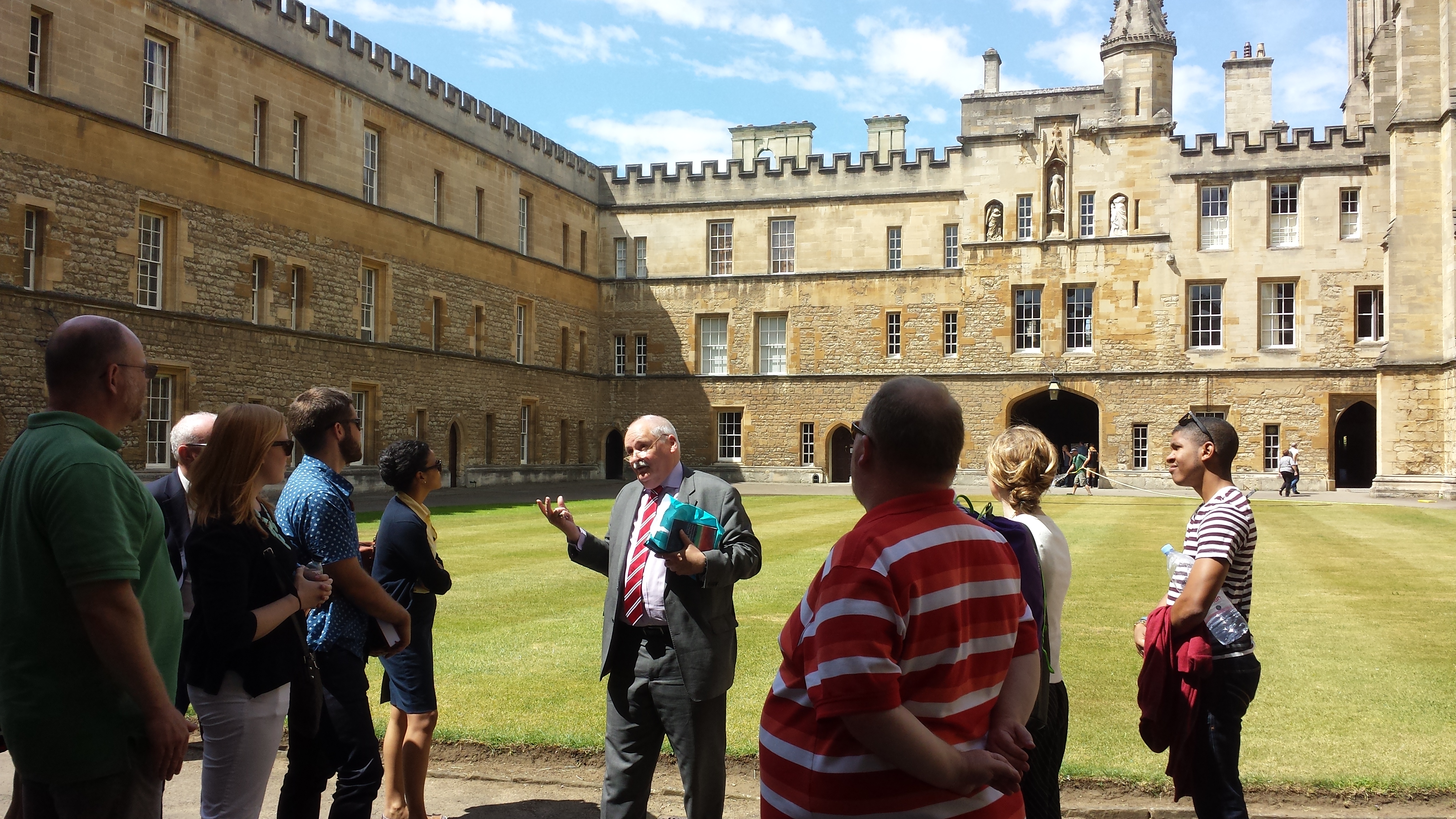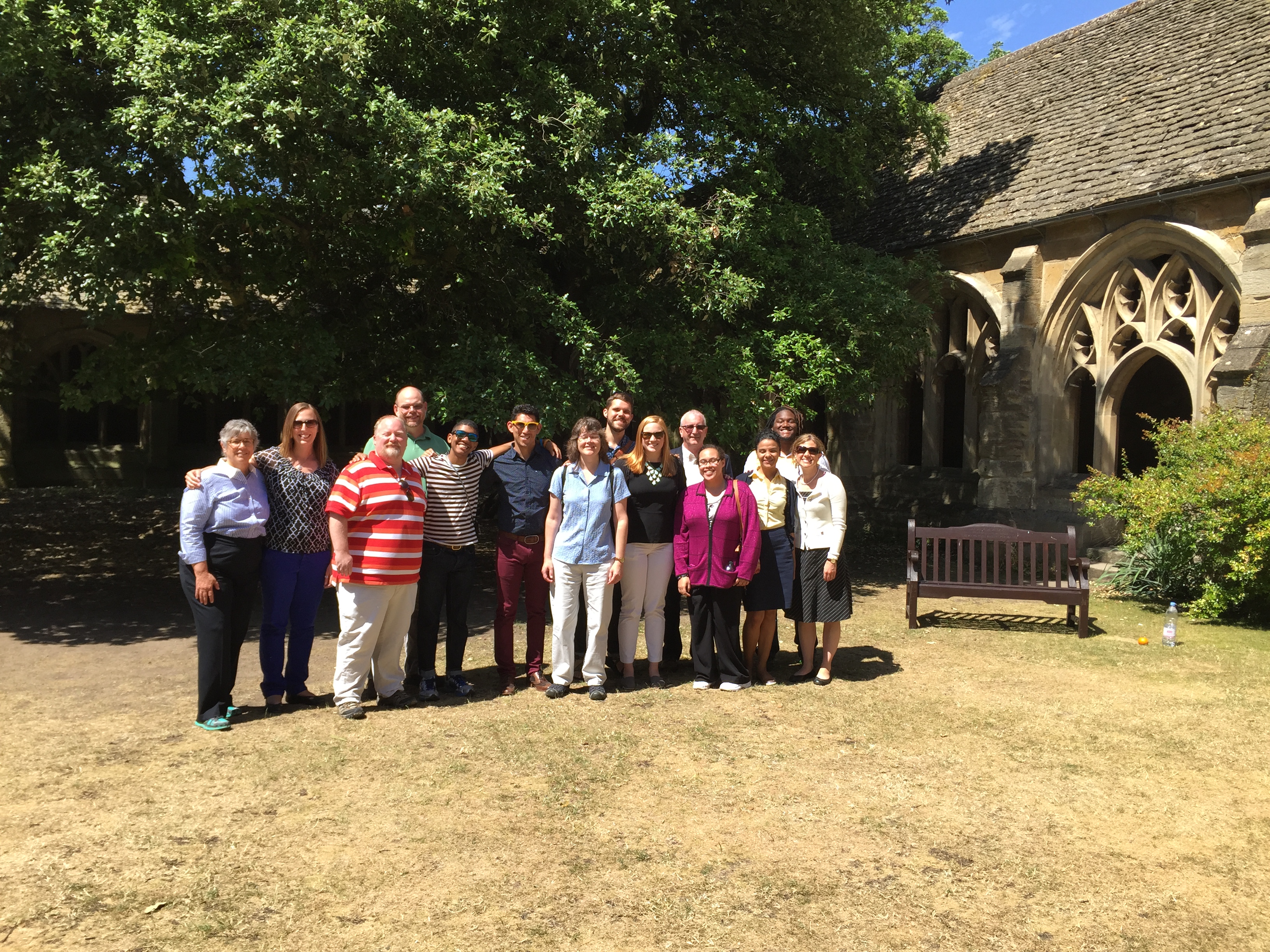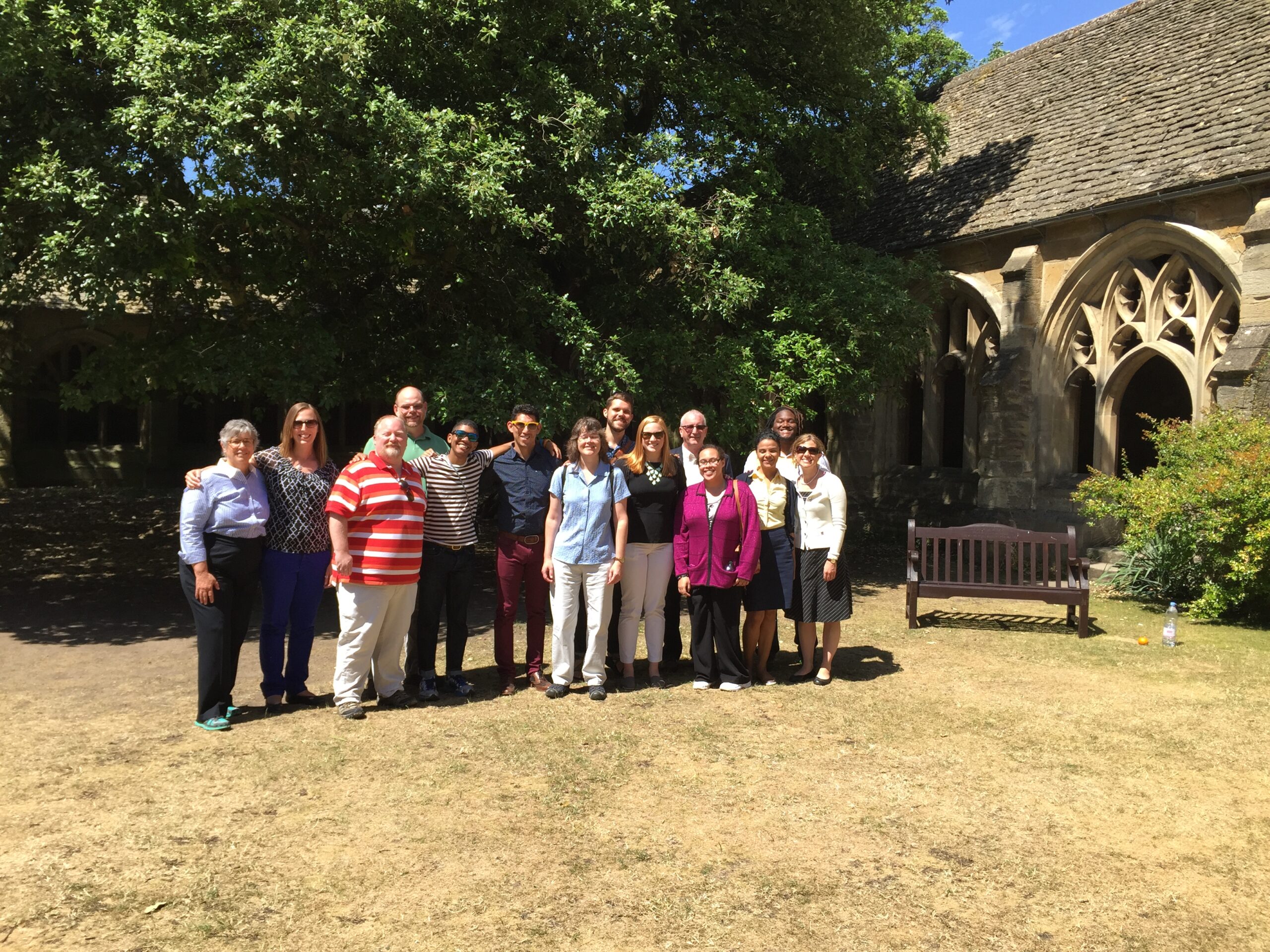We travel out of London to visit New College at Oxford University. David Palfreyman, Bursar and Fellow of New College, and Director of the Oxford Center for Higher Education Policy Studies (OxCHEPS), provides a summary of his college’s history. Mr. Palfreyman shares his views and answers questions of the group regarding student access to college, admission processes (both generally and specifically to Oxford), and support systems for the transition to and while at university. He introduces the term “positive discrimination” into the vocabulary of the group and contextualizes that concept for us within the UK admission system.

We are treated to a tour of New College, and also spend time looking around the broader campus. While many of the colleges are beyond our reach, securely locked behind walls and gates, we are able to take in several impressive sites on this historical campus.

CSHPE Master’s student William Crawford shares his impressions of our visit:
The Other “O” School
It seems there is another fierce collegiate rivalry across the pond! Cambridge and Oxford have a long standing history of disliking one another dating back to Cambridge’s origins. When we were in Cambridge we were not allowed to mention Oxford’s name and had to refer to it as “that other school” much like Michigan and Ohio State fans refer to each other as that school down the road or that school up north. I greatly enjoyed learning that Michigan and Ohio aren’t the only schools taking things to the extreme.
While we were at Oxford we had the privilege of meeting with David Palfreyman, Bursar of New College of Oxford University (U.S equivalent of Vice-President of Finance). He is also a leading legal scholar of UK higher education law. During the discussion we touched upon many different issues in UK higher education ranging from the cost-effectiveness of the Oxford tutorial, which is a time-intensive method of instructing undergraduates, to the lack of affirmative action in the UK. Many in the UK have discussed more focus on research like their American counterparts. I found the affirmative action discussion extremely enlightening. UK institutions do not use affirmative action in their admissions decisions and if they did it sounds like the focus would solely be on socio-economic status. Interestingly enough it sounds like many in the UK would not support socio-economic affirmative action (or race-based) or positive discrimination as it is referred to across the pond. This is in stark contrast to the U.S where many who disagree with race-based affirmative action actually prefer and applaud socio-economic affirmative action to support upward mobility. Possible reasons for this could be that the British admissions process relies heavily on the A-level standardized testing results and they do not consider much more in the admissions process. Given the strong focus on academic performance, organizations such as the Sutton Trust have focused their time and attention on assisting low-income high performing students with accessing the most selective British institutions, but I will talk more about our visit to the Sutton Trust in another post.
Other topics that we talked about with David Palfreyman were the complexities that plague U.S higher education general counsel offices. For the most part the United Kingdom does not have to deal with the messiness of fraternities/sororities or athletics. He even commented about the difference in stadiums between Berkeley and Georgia (I noted that comparing those two football programs was quite unfair).
We were also given the opportunity to tour the New College…as an added bonus we visited the cloisters where a portion of Harry Potter and the Goblet of Fire was filmed!
– William Crawford, master’s student

In the afternoon, several of us trek to nearby Blenheim Palace, the birthplace of Winston Churchill.
We arrive back in London quite late, but with many thought-provoking impressions from our visit to Oxford.

